Through self-help groups, rural women are witnessing changes in their role in the agricultural sector: from “invisible” farm laborers to entrepreneurs.

Women provide half of the labor in rice cultivation in India, according to the International Rice Research Institute ( IRRI) Farm Household Survey (2008-10). They do most of the tedious and backbreaking work in rice cultivation such as nursery raising, transplanting, weeding, harvesting, and threshing. In spite of their significant contributions, the women are only recognized as wives of farmers—not as farmers.
However, this image of rural women has begun to change in Munger in the eastern state of Bihar through the ITC Limited Social Investment Programme-Mission Sunehra Kal (Golden Future).
An action-research partnership
ITC is a private company noted for its sustainability practices and innovations to make markets more inclusive for the poor. In 2014, it started a program in the district of Munger to provide women farmers with enhanced skills and knowledge. ITC collaborated with the Self-Employed Women’s Association, comprising poor self-employed women who earn a living through their own labor or small businesses, as its project implementing partner. ITC also works in partnership with the Cereal Systems Initiative for South Asia (CSISA) for technical guidance. The program, Enhancing skills and knowledge of women farmers, aims to boost agricultural production by empowering rural communities to conserve, augment, and manage their environmental capital through sustainable agricultural practices.
Through this action-research partnership, the target rural women are witnessing changes in their role in the agricultural sector. Through self-help groups, the women farmers started using seeds of improved rice varieties and transplanting equipment that significantly contributed to their productivity. These are helping shift society’s perception of women: from “invisible” farm laborers, they are now entrepreneurs.

Mechanized women farmers
ITC established two women-led custom hiring centers (CHCs) to provide mechanization services to farming households in Munger District. Most of the members of these CHCs are landless farmers who grow crops on leased land or in a share-cropping arrangement.
These women-led CHCs serve as information hubs for sustainable agricultural practices such as direct-seeded rice, weed management practices, and mechanization. It is expected that this will lead to reduced labor requirement, decreased drudgery, lower cost of production, and timely agricultural operations.
In 2016, the CHCs provided services, from nursery raising to mechanical transplanting, harvesting, and threshing, to 153 farmers in 11 villages, covering around 77 hectares of farmland. The women—having acquired new skills and knowledge—are benefiting from increasing income.
They are also playing a critical role in agricultural innovation. Through the CHCs, women farmers are able to extend better farm management technologies and information to communities that are otherwise disconnected from these resources.
Wonder women
“We are the ones who are bringing new technology to our community,” said Meera Kisan Behan from Haveli Kharagpur block who attended a training in operating the transplanter. “What makes us happy is the fact that we are able to create positive changes in both the social and economic realms. Here, a woman driving a machine and providing transplanting and other services is very uncommon. Many raised their eyebrows in the beginning but that couldn’t stop me and my group from moving ahead.”
Tara Devi of the ITC Sunehra Kal Sita Sewa CHC said that she is “proud and extremely happy” to become an entrepreneur.
“Through the CHC, we provide services, through farm equipment and other inputs, to our fellow farmers,” she said, smiling.
In 2016, the total income of the CHCs generated from the service fees for their equipment for machine-transplanted non-puddled rice and zero-tillage methods, nursery enterprises, improved seeds varieties, and others reached USD 14,809, according to ITC.
Many more women farmers are leading the changes in their communities. The women-led CHCs and other innovations that promote the entrepreneurial skills of women in farming have the high potential for impact acceleration through reaching out to millions of yet unreached poor and marginalized farmers in India.
__________________
Ms. Munshi is a gender specialist for IRRI and CSISA in Bihar. Dr. Puskur leads IRRI’s Gender Research Program. Mr. Kumar is the regional manager of ITC and Mr. Nayak is the ITC senior program officer.


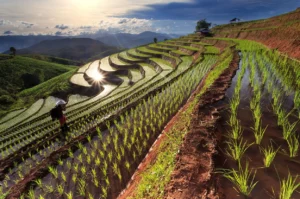
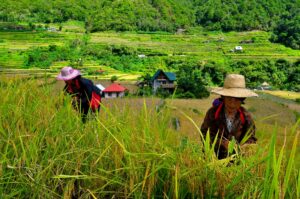
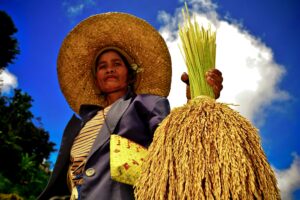
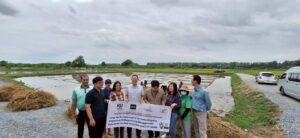
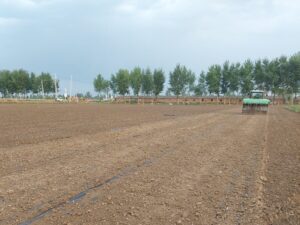
Thanks to irri for their tremendous help towards women empowerment…..
nice to see development in Munger. That time ITC was only famous for cigretts. Now CSR has spread in remote distts. i may me contacted 91-9956391212